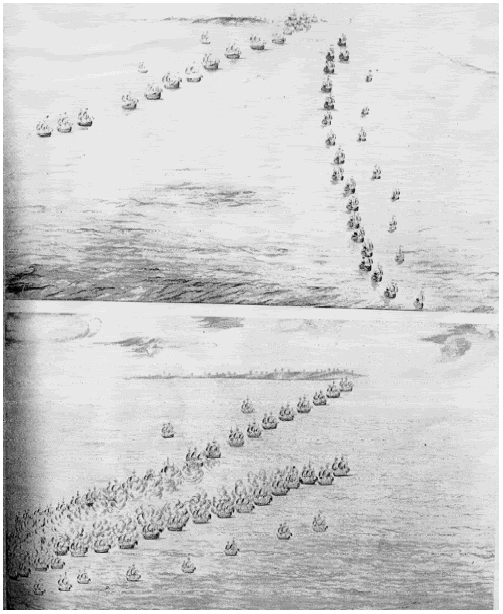the majority of troops were on shore
The French fleet had been disembarking the troopships they had escorted from the Caribbean (St. Simon's Corps & the artillery train). Some of the sailors and officers of the French fleet were involved in the amphibious operation. However, De Grasse had recalled his boats and some did return to the French fleet before the anchors were slipped. One can say with confidence that although one or two French warships were undermanned by no means all or the majority was the case.
They would have been an easy victim if the English commander had attacked them right from the beginning
This completely ignores the fact that De Bougainville, who was leading the van of De Grasse's fleet, knew about the shoals surrounding Cape Henry and exploited them as his division exited the bay. It would have been foolhardy to launch a fleet attack in such a dangerous area. Graves, indeed, did move the fleet to attack as the van under De Bougainville moved out of the bay, but before crashing the shoals around 2pm, Graves ordered the fleet to 'wear' about and attack the French ships in an oblique formation.

The first image represents the English fleet at about 2pm before wearing against De Bougainville. The second image represents the cannonade as it developed by the late afternoon/early evening.
but he went with the usual tactics and sailed back to form a clear battle line
Sailing ship & dreadnaught battle formations are based on the maintenance of a clear line of battle.
He should have followed the example of Drake against the Armada etc. and not the conventional naval tactics at this time
Pray tell, what do you mean by the examples of Drake, etc? What were the conventional naval tactics of the time and how did they interfere with the conduct of battle on Sept. 5th, 1781?















 - By wat0n
- By wat0n - By Potemkin
- By Potemkin